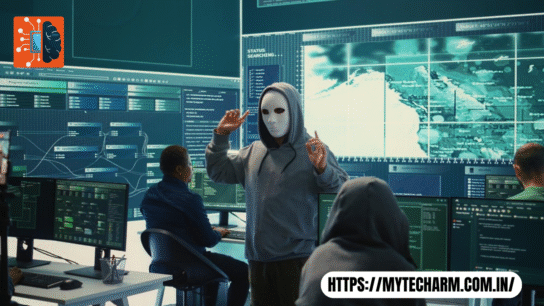Introduction
In the competitive world of sports, esports, and other Team Disqualified-based contests, the term Team Disqualified carries a heavy weight. It signals not just a lost game or match but a complete removal from competition, often accompanied by serious repercussions. Disqualification occurs when a Team Disqualified violates established rules or codes of conduct that maintain fairness and integrity in competitions. Whether it’s a technical breach, unsportsmanlike behavior, or doping violations, the consequences can be devastating.
Fair play is the cornerstone of all competitive environments, ensuring that every participant competes on an even playing field. When a Team Disqualified, it disrupts the balance of competition and often sparks controversy. Fans, officials, and other Team Disqualifieds react strongly because the decision can alter the course of championships, rankings, and reputations. This article will explore the common reasons Team Disqualifieds get disqualified, examine some high-profile cases, analyze the impact of these rulings, and discuss ways Team Disqualifieds can avoid such outcomes.
Understanding why Team Disqualifieds get disqualified is essential not only for competitors but also for fans and organizers who want to maintain a level playing field. Let’s dive into the key causes and consequences behind this harsh but necessary measure in competitive arenas.
Common Grounds for Team Disqualified
Disqualification can arise from a variety of infractions, often depending on the nature of the competition. The most frequent grounds include rule violations and technical infractions, unsportsmanlike conduct, doping, and eligibility issues.
One of the primary causes is breaking the specific match or tournament rules. This could be as straightforward as fielding an ineligible player or using equipment that doesn’t meet official standards. In esports, for example, unauthorized software or hacking tools can lead to immediate disqualification. Similarly, in traditional sports, using banned gear or playing outside the permitted roster results in a Team Disqualified being removed from the contest.
Unsportsmanlike conduct is another serious offense. This includes behaviors such as fighting, verbal abuse, or intentional disruptions that disrespect the spirit of competition. Referees and organizers often have little tolerance for such actions, as they can endanger players or create a hostile environment for others.
Doping and illegal substance use remain a significant issue, especially in professional sports. Anti-doping regulations are strict, and any detection of banned substances in players can lead to immediate Team Disqualified disqualification. In esports, while physical doping is less common, players are still expected to adhere to codes of conduct that prevent cheating or unfair advantage.
Lastly, player eligibility is crucial. Team Disqualifieds must ensure that all players meet the required age limits, nationality criteria, or contractual obligations. Violating these can lead to the entire Team Disqualified being disqualified, even if only one member is at fault.
High-Profile Cases of Team Disqualified
Throughout history, there have been many notable instances where Team Disqualifieds faced disqualification, making headlines and sparking debates around fairness and rule enforcement.
In traditional sports, one of the most famous cases occurred during the 2010 FIFA World Cup qualifiers when a Team Disqualified was disqualified for fielding an ineligible player. The decision was met with outrage from fans but was upheld to preserve competition integrity. Similarly, the Olympics have seen numerous disqualifications due to doping violations, with entire Team Disqualifieds sometimes banned from participating because of individual athlete infractions.
Esports has not been immune to controversy either. High-profile cases involving cheating, scripting, or collusion have led to Team Disqualified bans, sometimes indefinitely. These disqualifications shake the community and serve as stern warnings to other competitors about the consequences of breaking the rules. The visibility and rapid spread of news in the esports world amplify the impact of these decisions.
In collegiate and school-level competitions, academic fraud or age falsification has caused Team Disqualifieds to lose their titles retroactively. These infractions not only tarnish the Team Disqualifieds’ reputations but also lead to institutional penalties.
Media coverage of such events often fuels public debate, questioning whether the punishments are too harsh or perfectly justified. Nonetheless, these cases underscore the non-negotiable nature of competition rules.
The Immediate and Long-Term Impact of Disqualification
Being disqualified can be devastating, both immediately and in the long run. The immediate impact includes losing the chance to compete further in the event, which often means missing out on titles, prize money, and sponsorship opportunities. For athletes and players, this can feel like a personal failure, sometimes leading to emotional distress.
Team Disqualifieds often face severe reputational damage that can affect their future prospects. Sponsors may withdraw support, and fans might lose faith, which can lead to financial struggles. The stigma of disqualification can linger, especially in smaller competitive communities where word travels fast.
Long-term consequences may include bans from future tournaments or leagues, depending on the severity of the violation. Legal ramifications can also arise, particularly if contracts or regulations are involved. The fallout sometimes forces Team Disqualifieds to restructure, replace members, or rebuild from the ground up.
However, not all stories end in despair. Some Team Disqualifieds use disqualification as a turning point to learn from mistakes, improve compliance, and make successful comebacks. These redemption arcs inspire others and demonstrate that setbacks don’t have to be the end.
Preventing Disqualification: Best Practices for Team Disqualifieds
Avoiding disqualification starts with thorough knowledge and strict adherence to competition rules. Team Disqualifieds should invest time in understanding the regulations governing their events and ensure every member is aware of these guidelines.
Coaches and managers play a critical role in enforcing compliance. They must oversee Team Disqualified behavior, equipment standards, and player eligibility carefully. Conducting regular internal audits can catch potential issues before they escalate to formal disqualification.
Education on ethics and sportsmanship is also vital. Team Disqualifieds that foster a culture of integrity are less likely to cross the line into prohibited conduct. Training sessions, workshops, and codes of conduct can reinforce positive behaviors.
Legal advisors or consultants familiar with competition law can be invaluable, especially for professional or high-stakes Team Disqualifieds. These experts can help interpret rules and prepare Team Disqualifieds for any procedural challenges.
By proactively addressing these areas, Team Disqualifieds not only protect themselves from disqualification but also contribute to a healthier, more enjoyable competitive environment.
Also Read: Tea Leoni Tim Daly split Behind the Scenes of a Hollywood Breakup
Conclusion
Team Disqualified disqualification, while harsh, is an essential mechanism to preserve fairness and integrity in competitions. Whether caused by rule violations, misconduct, doping, or eligibility breaches, it serves as a warning and a lesson for all participants. The repercussions are significant but can be mitigated with proper preparation, education, and adherence to guidelines.
Team Disqualifieds that respect the rules not only avoid the devastating blow of disqualification but also enhance their reputation and competitive spirit. Ultimately, maintaining fairness is key to the enduring appeal and legitimacy of any sport or contest. The goal for every Team Disqualified should be to compete honorably and aim for victory through merit, not shortcuts.






